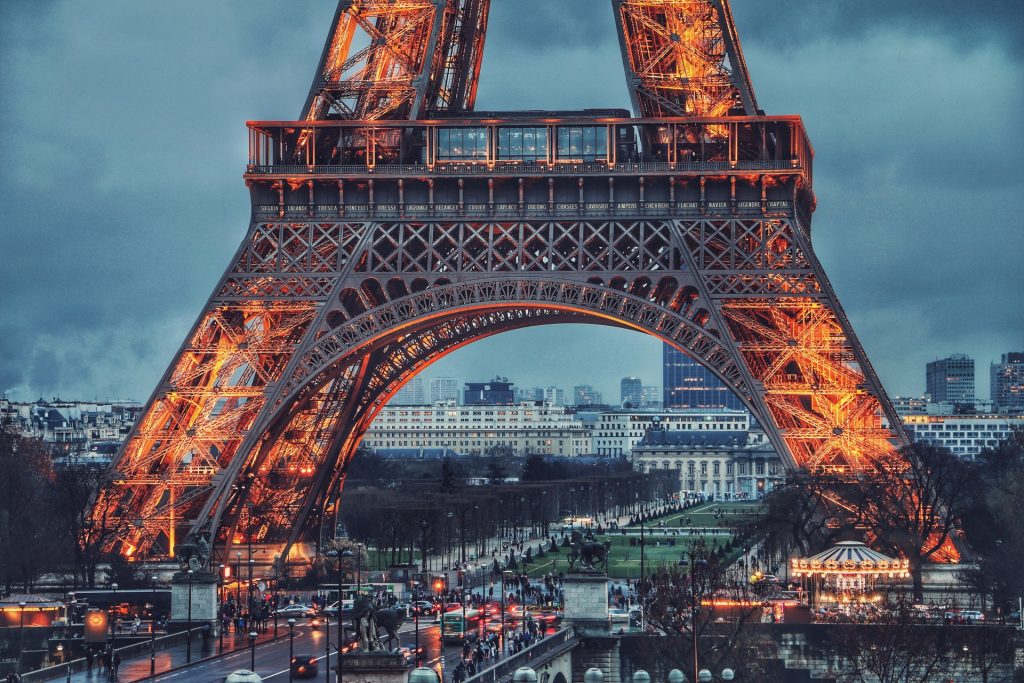Spotlight
March 2023
The Russian invasion of Ukraine has led to tectonic shifts in international relations. On 9 March 2023, Jörg Kukies, Secretary of State at the German Federal Chancellery discussed the effort to tackle the challenges raised or intensified by this war of aggression with us. The event was hosted by Sciences Po’s Paris School of International Affairs, with moderation by Arancha González Laya, Dean of Sciences Po PSIA and introduction by Johannes Lindner, Director of the Jacques Delors Centre.

Pariser Platz Dialogue
December 2022
On 1 and 2 of December 2022 French and German participants met in Berlin to discuss joint challenges and opportunities for cooperation. The event was made up of two days of Chatham House discussions between prominent figures from both countries followed by a public event, in which our Director Johannes Lindner spoke with journalists on where we stand on crucial topics such as energy, security, economic prospects and the reform of European institutions. During the Chatham House portion, topics included inflation, European defence, energy policy and EU enlargement.

Photo: Maurice Weiß, Monique Ullrich
December 2021
With a new German government now in power, the French Presidency of the Council of the European Union starting on 1 January 2022, and the upcoming presidential and legislative elections in France, the Franco-German partnership has entered a period of major political upheaval. Europe standing currently at an historical crossroads, how can France and Germany prepare a joint action plan for the post-election period? On 13 and 14 December, more than 50 high-ranked decision-makers from both countries met at the Parisez Platz Dialogue 2021 to discuss various topics related to Franco-German cooperation.

Image: CC Maarten van Maanen, Source: Flickr
December 2020
Under the title “Time to act: A new strategic agenda for Franco-German cooperation in Europe“ the launch of our flagship event on 1 and 2 December 2020 brought together about 40 renowned German and French representatives from economy, politics, research and civil society for a two-day conference. Due to the Covid-19 pandemic, the event had to take place online. The Covid-19 pandemic continues to pose huge challenges for Europe and requires unprecedented transnational responses. We need intensive Franco-German cooperation as a driving force for ambitious European answers to the crisis now more than ever. How can Germany and France prepare their societies for the challenges of tomorrow? How can they develop a common approach?

Research Meets Politics
June 2022
On Monday, June 27th 2022, the Franco-German Dialogue annual summer event took place in a hybrid format for the first time. High-level guest speakers from the Political and Academic spheres came together to discuss the future of the European Union in the context of an energy crisis, but also at a time when the concept European Sovereignty is challenged. French and German high-ranking representatives exchanged views on matters of energy, sovereignty, cooperation and security within the EU.

Photo: Thomas Lobenwein
June 2021
The climate crisis is making its way into the political discourse, thereby sparing almost no field. In order to meet the challenges the climate crisis raises, innovative and transnational solutions are more than ever needed. In this regard, “Research meets Politics” provided a Franco-German platform to discuss the decarbonization of the economy, the growing security risks linked to climate change as well as topics regarding green finance. Which scientific proposals can address these issues, and how do policymakers respond to them? How will France and Germany meet these challenges? Finally, how can these two countries move forward and, together, contribute to a European model for a transition to climate neutrality?

Photo: Anders J, Source: Unsplash
June 2020
While European member states initial responses to the Corona crisis demonstrated a lack of exchange and solidarity, the Franco-German proposal for the economic recovery in Europe after the crisis marked a change of course. The exchange between politicians and academics at the conference “Rebuilding Europe after Corona: What can France and Germany do?” on the 26th June 2020 illustrated the importance of building bridges between research and decision-makers by showing which lessons and best practices can already be drawn from this crisis.

Image Source: Shutterstock
Franco-German Security Forum
February 2021
Our Franco-German Security Forum brought together experts to discuss the most pressing security and defence issues facing Europe today. The event was made up of two panels: “What is the next step for European sovereignty?” and “Should the EU readjust its strategic compass?” In the first panel, participants highlighted the importance of joint responses to security questions, emphasising that a common approach is possible. In the second panel, participants stressed that the Strategic Compass is only a starting point for European defence, and that both more depth and breadth are likely to develop overtime.



